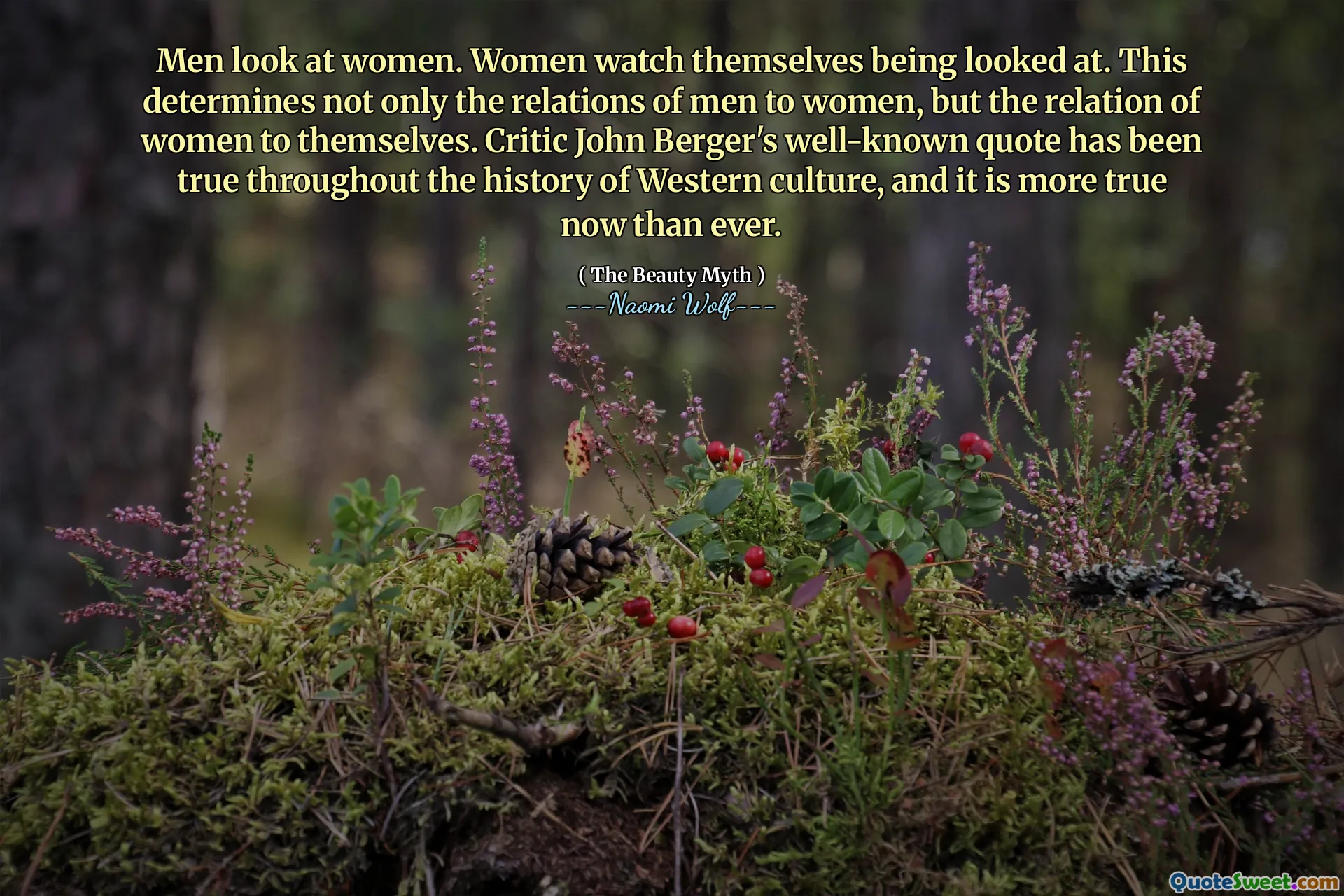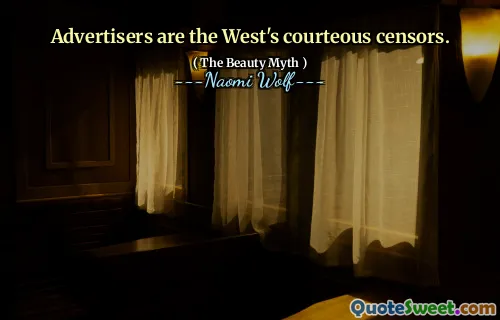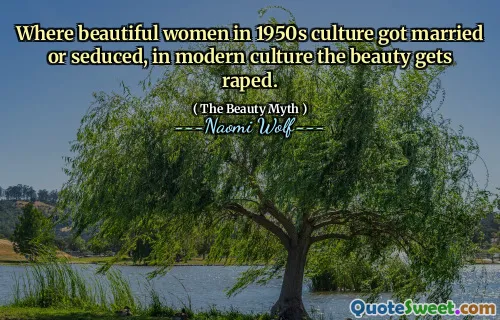
Men look at women. Women watch themselves being looked at. This determines not only the relations of men to women, but the relation of women to themselves. Critic John Berger's well-known quote has been true throughout the history of Western culture, and it is more true now than ever.
John Berger's observation delves into the profound dynamics of visual perception and societal gaze that underpin gender relations. This quote resonates deeply within the fabric of cultural and social conditioning, highlighting how women’s self-perception is often shaped by the constant observation and judgment of others, particularly men. The cyclical nature of this gaze leads women to internalize societal standards of beauty and behavior, which profoundly influences their self-esteem and identity. As Berger suggests, this dynamic extends beyond mere interactions between genders, affecting how women perceive themselves in relation to societal expectations.
In contemporary society, this phenomenon is exacerbated by the pervasive influence of media, social networks, and digital platforms that amplify the gaze and often idealize unattainable notions of beauty. Women are not only scrutinized by others but are also increasingly scrutinizing themselves through a digital mirror, which can foster feelings of inadequacy and self-objectification. This dynamic creates a paradox: women strive to be seen and valued, yet the way they are looked at often reduces their agency and authentic self-worth.
Berger's insight compels us to consider the importance of genuine, respectful, and liberating views of women that affirm their autonomy and multifaceted identities. Challenging the societal gaze is crucial in fostering a culture where women can exist beyond objectification, embracing their individuality without the pervasive influence of external judgment. Ultimately, this quote calls for awareness and resistance to the gaze that perpetuates inequality and limits authentic self-expression.
( The Beauty Myth ) - author: Naomi Wolf.






